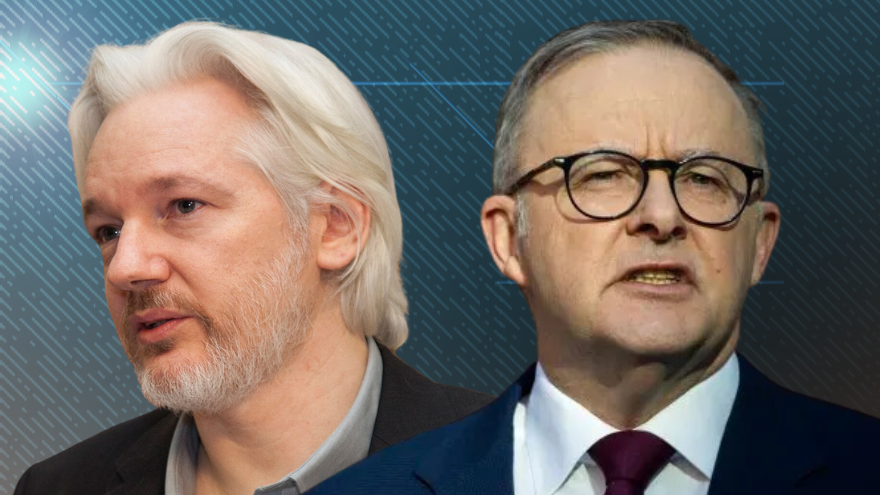Australian Prime Minister Anthony Albanese condemned the United States’ prosecution of WikiLeak’s founder Julian Assange.
Assange could be sentenced to up to 175 years in a maximum security prison if he is extradited to the United States from the United Kingdom. Assange, an Australian national, is facing 17 charges under the Espionage Act for receiving, possessing and communicating classified information to the public as well as one charge of conspiracy to commit computer intrusion.
While visiting Australia on July 29, United States Secretary of State Antony Blinken met with Australian Foreign Minister Penny Wong to discuss Assange. He said Assange has been accused of “very serious criminal conduct.”
“I understand the concerns and views of Australians. I think it’s very important that our friends here understand our concerns about this matter,” said Blinken while speaking with the press, per AP News.
Wong told reporters the Australian government wanted Assange’s case "brought to a conclusion."
“This has gone on for too long," Albanese told reporters on Aug. 2. “Enough is enough.”
“We remain very firm in our view and our representations to the American government and we will continue to do so,” the prime minister.
Assange was arrested for skipping bail in 2019 after spending seven years living in the Ecuadorian Embassy in London. He is currently being held in Belmarsh Prison, a high-security men’s facility.
“Australia remains ambiguous about whether the U.S. should end the prosecution or reach a plea deal,” reports Fox News. “Australian officials argue that there is a disconnect between the U.S. government's treatment of Assange and [U.S. Army intelligence analyst Chelsea Manning]. Former President Obama commuted Manning’s 35-year sentence, for violations of the Espionage Act and other offenses, to seven years.”
In May, Australian lawmakers urged Ambassador Caroline Kennedy to assist in lobbying the U.S. government to drop the extradition case against Assange. The “Bring Julian Assange Home” Parliamentary Group told Kennedy that there is nationwide concern about America’s treatment of the WikiLeaks founder.
“There are a range of views about Assange in the Australian community and the members of the Parliamentary Group reflect that diversity of views,” said a representative of the group to the media after the meeting, per Al Jazeera. “But what is not in dispute in the Group is that Mr. Assange is being treated unjustly.”
Gabriel Shipton, Assange’s brother, and WikiLeaks’s Australian lawyer Stephen Kenny both spoke at a rally in Sydney in May where 800 protestors demanded Assange be freed.
There is also support for Assange's release among American lawmakers.
In April, Congresswoman Rashida Tlaib of Michigan called on her fellow representatives to demand the Department of Justice drop the charges against Assange. In a letter obtained by The Intercept, the Democrat said the case centered on the constitutionally protected right to a free press.
“I know many of us have very strong feelings about Mr. Assange, but what we think of him and his actions is really besides the point here,” wrote Tlabib. “The fact of the matter is that the [way] in which Mr. Assange is being prosecuted under the notoriously undemocratic Espionage Act seriously undermines freedom of the press and the First Amendment.”

